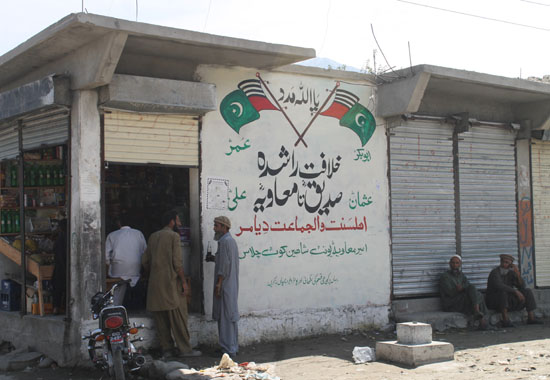
As airstrikes continue to pound militant compounds in North Waziristan, media reports that a full scale military operation is finally in the works targeting militants in the region. Such an operation is necessary, but it is not sufficient to root out the problem of extremist violence in the country. Just as the 2009 operation in South Waziristan did not end terrorism, neither will a successful operation that only takes place in North Waziristan today.
While most attention has been paid to North Waziristan, extremism is growing in other parts of the country and must be addressed as well. Punjab in particular has seen a rapid increase in extremist activity since recent years.
The militant Sipah Sahaba Pakistan set up 75 district-level branches and 225 smaller units in the days before the group was banned in 2002. It is still active under changing names, and by all accounts it is growing. Other groups have varying levels of entrenchment in the area.
Radicalisation is unevenly distributed in central and northern Punjab. However, madrassas everywhere are fertile grounds for idealistic extremism.
Other main drivers of radicalisation in semiurban or urban parts of Punjab are misplaced notions of jihad and a deep mistrust of the West. Militant groups tend to concentrate on colleges and universities, and middle-income groups such as lawyers, traders and doctors.
Growing alienation from society may drive upper and middle-class Punjabis to find solace with entities such as Hizb-ut-Tahrir, which aims to indoctrinate opinion leaders. Another group, Al Huda, which focuses on women, is fast becoming a fad in the upper crust of society. These organisations espouse “bringing Muslims back to their roots”, an ideal that resonates among the educated elite.
Punjabi extremism is a volatile mix. Grinding poverty, corruption, extremist seminaries and socio-economic inequalities are a recipe for disaster.
Chief Minister Sindh has proposed a crack down on illegal seminaries in Karachi. This is an important move, and one that has been a long time coming. Provincial governments need to investigate and shut down not only unregistered seminaries, but those which are run by banned organisations and actually teaching jihad instead of Islam. In 2011, federal government requested action against almost 2,000 illegal madrasas in Sindh.
The federal government has asked the Sindh government to take immediate action against 1,813 madrassas being run by banned organisations across the province. In a letter to the Sindh Home Department, the Interior Ministry sought action against 1,147 madrassas of the Deoband sect, 609 of the Barelvi sect and 57 of the Fiqh-e-Jafariya sect. According to the Centre, 933 madrassas are situated in Karachi, 488 in Hyderabad and 392 in Sukkur.
Lashkar-e-Jhangvi, Sipah-e-Muhammad, Sipah-e-Sahaba Pakistan, Millat-e Islamia Pakistan, Tehreek-e-Jafaria Pakistan, Islami Tehreek Pakistan, Jaish-e-Muhammad, Khademul Islam, Jamiat-e-Furqan, Hizbut Tahrir, Jamiatul Ansar, Tehreek-e-Nafaz-e-Shariat-e-Muhammadi, Lashkar-e-Tayyaba, Jamaatud Dawa, Khairun Nas International Trust, Lashkar-e-Islam, Ansarul Islam, Haji Namdar Group, al Akhtar Trust, al Rashid Trust, al Qaeda, Balochistan Liberation Army, Islamic Students Movement of Pakistan, Tehreek-e-Taliban Pakistan, Sunni Tehreek (already on the watch list) and People’s Amn Committee were mentioned in the letter.
The letter also listed organisations that started operating under a new name after they were banned, including Sipah-e-Muhammad that re-emerged as Millat-e Islamia Pakistan, Tehreek-e-Jafaria Pakistan as Tehreek-e-Islami, Jaish-e-Muhammad as Khademul Islam and al Rehman Trust, Jamaat al Furqan as Jamiat-e-Furqan, Lashkar-e-Tayyaba as Jamaatud Dawa, al Akhtar Trust as Azmat Foundation and People’s Amn Committee as Awami Amn Committee.
Like a man afflicted with cancer, removing only one tumor will not cure the disease. All tumors must be removed before health can be restored. A full operation to defeat the Taliban in North Waziristan is a start, but the war will not be won until extremism is rooted out from every corner of the nation.
![]()





